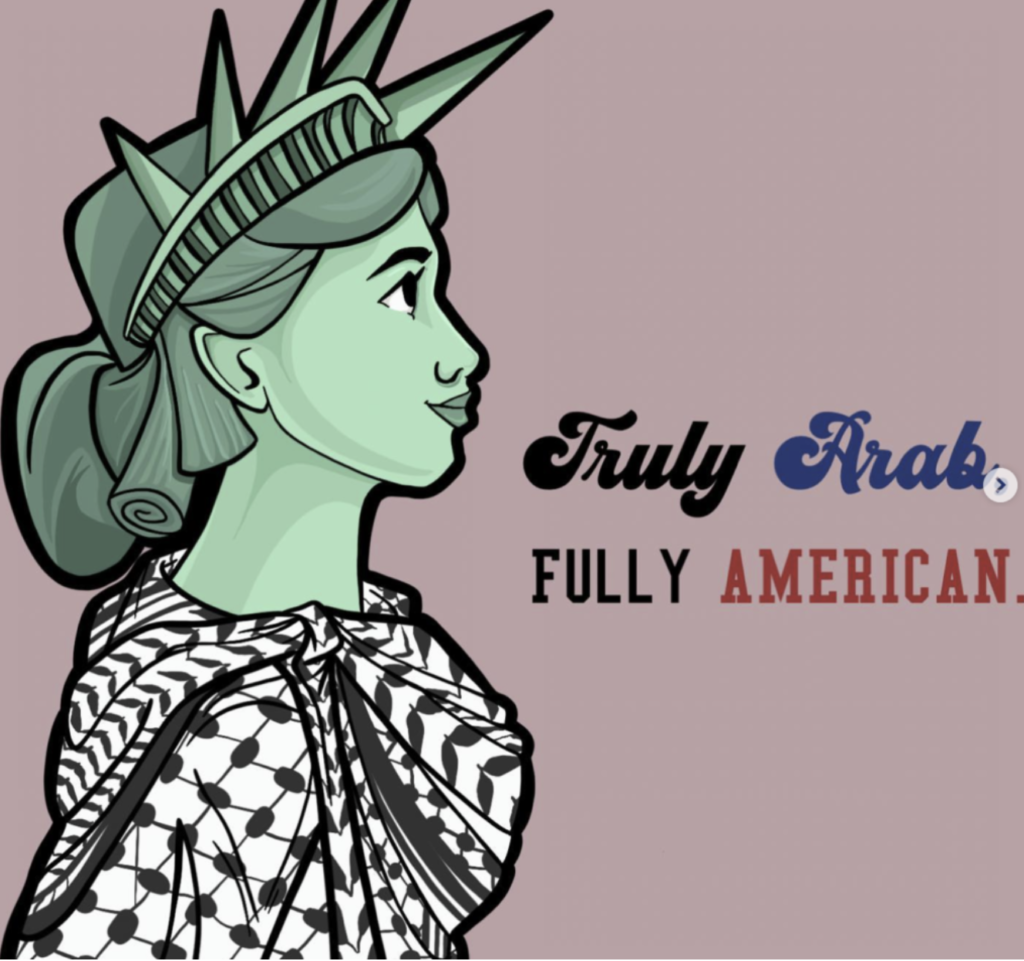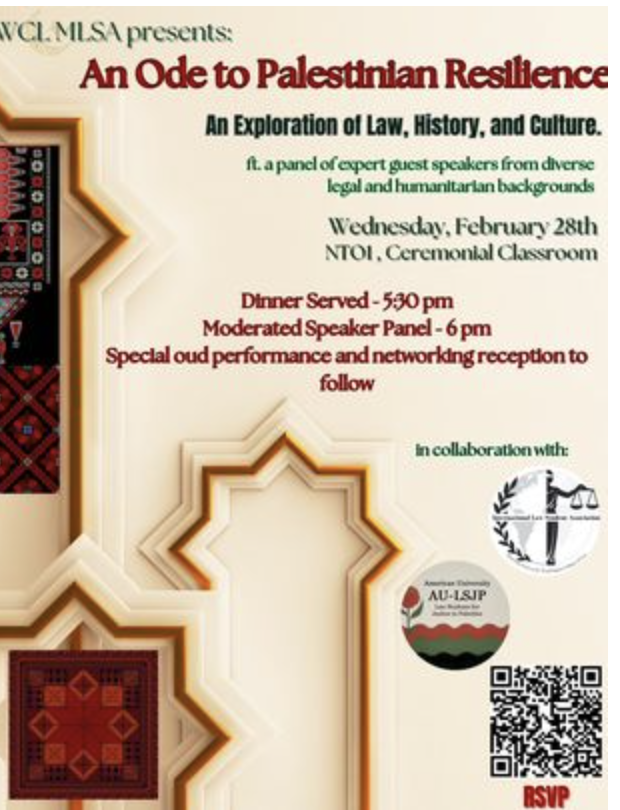More than just an Ode to Palestine: A Guide For Continuous Engagement, Community and Belonging During Time of Hardship

By: Malak Hassouna /Arab America Contributing Writer
Community is one of the things that Arab Americans long for, whether they are raised in the Arab world or grew up in the diaspora. When we move away for college or a job and leave our community, we long for the one we had at home, surrounded by our family and friends. As a student abroad after October 7, it felt lonely. Malak found herself amongst the community during the Ode to Palestine event hosted by the Muslim Law Student Association of the Washington College of Law in partnership with American University Law students for justice for Palestine and the International Law Student Association right in the nation’s capital.

When our people were attacked for existing and being who they were, keeping a push to keep sharing our culture, food, and history is essential. It is a famous saying we heard during the BLM movement by Patrisse Cullors: “Our existence is resistance.” Our continued existence and holding our community close was one of the repeated phrases during the night. It was a night that came together due to a collaboration between our community with art from Jasmine’s Hawamdeh latest collection honoring the people of Gaza to an incredible panel to music by Fuad Foty and his daughter (that brought tears to the eyes of many), stories of survival and resistance, to the thoughtfulness even put in the food choices to honor Palestine.
A diverse range of careers on the panel in advocacy, communications, law, art, and politics. The following women shared their activism and experiences in advocating for Palestine: Diala Ghneim(UNRWA communications manager), Jasmine Hawamdeh, Rawda Fawaz (CAIR Legal Defense), Isra Chaker(Senior Campaign Manager and advocate), and moderated by Anita Sinha (Faulty member and Director of International Human Rights Law Clinic). They all have distinguished careers that have taught the audience to open their minds to new ways of thinking. One of them was how they created a cheat sheet on how to keep engaging and advocating that no matter your cause, you can benefit from it.
- Relate cause to your audience, and know and tailor your language to your audience.
- Find your community. You need people to keep fighting.
- Be smart and careful.
- Art should be bold.
- “There are reasons artists are being attacked…art is a form of social change,”- Jasmine.
- Figure out what resources are near you.
- Think outside the box and be creative when interpreting the Constitution. Challenge and push yourself (tip from Rawda: look at what conservative judges have to say about the First Amendment and Title 7 cases). Read unpopular opinions. We have to utilize what we have.
- “Traditionally progressive values have an exception to Palestine.” – Isra.
- Use resources wisely when campaigning.
- Know your value add.
- Think creatively.
- Prioritize storytelling.
It is also important to remember why people keep encouraging and advocating, and even from that, the audience got a different perspective: “We advocate and speak up because we do not have a choice … especially when you are Palestinian, we work every day against erasure,” Jasmine. From another look at your obligation, especially if you are a lawyer, Rawda believes, “[you] have a set of skills that not a whole lot of people have and a whole lot of people need.”
There are many ways to show your resistance, and this night truly encapsulated that. A notable moment was the lovely music by Fuad and his daughter, which ended the night; from “My name is the Palestinian people” to “My blood is Palestinian,” the audience was in tears.
The night motivated us to keep advocating, engaging, and resisting even if drained and exhausted. It reminded us that the Palestinian people do not have a choice, and the least others can do for them is keep pushing. As Diala said, we must keep “advocating for Palestine is the least we can do…we lead a life of privilege living here, but also growing up going to schools that we went to”. The panel emphasized the importance of community during this challenging time. WCL’s MLSA went above and beyond to bring people together that night to celebrate the Palestinian people, their culture, and their history. From faulty students, community members, and staff, people were there to show up for Palestine, which is a sign of resistance.
Authors Note: During a time when administrations and other organizations on campus are attacking Palestinian student organizations and their allies. What the Muslim Student Association of the Washington College of Law, American University Law Students for Justice for Palestine, and the International Law Student Association did that night was incredible and a reminder that we still can exist and speak up against the injustices happening on campuses everywhere. This is a movement not just on one campus but everywhere in the nation.
Check out our Blog here!








